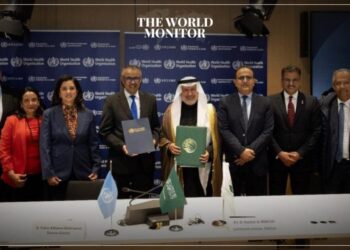Arab countries increased their coffee imports from Brazil by 56.2% in the first six months of the year compared to the same timeframe in 2022, as per the Brazilian Council of Coffee Exporters (Cecafe) data.
Brazil, the globe’s top coffee exporter despite the drink’s roots in modern-day Ethiopia and Yemen, shipped 592,887 60-kg bags of coffee to Arab nations from January to June. Lebanon led the imports, receiving 144,344 bags, almost one-fourth of the total sent to Arab nations, followed by Jordan’s 94,609 bags.
The surge in Arab demand can be attributed to lower coffee prices and an increased supply of Arabica beans from Brazil, thanks to favorable weather. Brazil faced droughts and unprecedented frost during 2021-2022, which hampered its coffee farms, rendering other varieties more appealing to Arab buyers.
Arabica beans, globally the most popular type, comprised 87% of Brazil’s coffee exports to Arab nations in this year’s first half. Osamah Alawwam, founder of Saudi Arabia’s Roasting House, emphasized Brazilian coffee’s vital role in quality espresso blends. Its global appeal lies in the bean’s consistent, rich, and nutty flavor.
Marcio Candido, Cecafe’s President, highlighted Brazil’s unique position as a producer of all coffee types. Beyond diverse varieties, Brazil’s coffee sector stands out for its sustainability and corporate responsibility. Brazilian coffee consumers, including those in Arab countries, indirectly contribute to improving the lives of the country’s coffee growers. Brazil prioritizes rewarding its farmers fairly, with Candido emphasizing the significance of ensuring producers enjoy the benefits of their exports.
By setting high standards and emphasizing sustainability, Brazil aims to foster and uphold coffee cultivation. Candido beautifully encapsulated the essence of coffee, describing it as a symbol of camaraderie, uniting people irrespective of their mood or circumstances.






